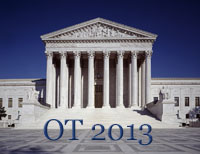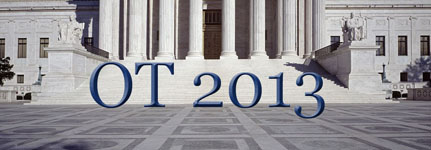US Supreme Court Review: Crime and Causation
 (This is the first post in our series, Looking Back at the U.S. Supreme Court’s 2013 Term. Other posts, when they appear, can be found here.) The Court’s criminal docket this term included two interesting causation cases that came to somewhat different conclusions. The cases were Burrage v. United States, 134 S. Ct. 881, which dealt with criminal responsibility for a drug-related death, and Paroline v. United States, 134 S. Ct. 1710, which dealt with restitution for a child pornography victim. In both cases, the Court had to grapple with tensions between traditional, narrow understandings of causal responsibility in the law and a natural human desire to hold bad actors accountable for tragic harms with which they seem to have some connection, even if that connection is a tenuous or uncertain one.
(This is the first post in our series, Looking Back at the U.S. Supreme Court’s 2013 Term. Other posts, when they appear, can be found here.) The Court’s criminal docket this term included two interesting causation cases that came to somewhat different conclusions. The cases were Burrage v. United States, 134 S. Ct. 881, which dealt with criminal responsibility for a drug-related death, and Paroline v. United States, 134 S. Ct. 1710, which dealt with restitution for a child pornography victim. In both cases, the Court had to grapple with tensions between traditional, narrow understandings of causal responsibility in the law and a natural human desire to hold bad actors accountable for tragic harms with which they seem to have some connection, even if that connection is a tenuous or uncertain one.
Burrage nicely illustrates the tension.

